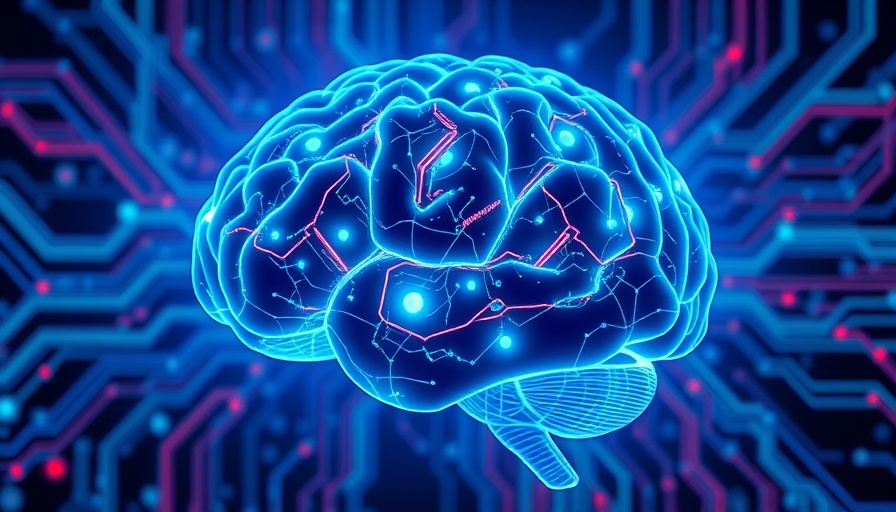
The Dawn of a New Era in AI Performance
Anthropic's Claude 3.7 Sonnet model is set to revolutionize the landscape of artificial intelligence with its unique approach to processing speed and deep reasoning. Released recently, this cutting-edge AI model not only aims to outperform its competitors but also integrates reasoning as a core function rather than an afterthought. While traditional AI models typically require users to toggle between modes for complex tasks, Claude 3.7 Sonnet seamlessly adapts, engaging in extended thinking or quick responses based on the user's input.
Understanding Claude's Groundbreaking Capabilities
The Claude 3.7 Sonnet introduces a remarkable “extended thinking” mode that allows for meticulous reasoning processes. This mode comes into play when faced with intricate queries, culminating in comprehensive answers that reflect a deeper level of thought. The capacity for an AI to recognize when it should engage in this mode illustrates a significant shift in the technology's design philosophy, akin to how humans utilize varying levels of cognitive effort for different types of problems.
Benchmarking Against Competitors
In head-to-head tests, Claude 3.7 Sonnet has shown exceptional performance across various benchmarks. Not only has it surpassed OpenAI's popular models in practical applications, like software issue resolution on SWE-bench, but it has also made its mark within complex task frameworks such as TAU-bench. Despite its prowess, there are areas, such as math problem solving and multisensory reasoning, where Claude remains a work in progress, keeping the competitive scenario dynamic.
Automating Software Development with Claude Code
A notable aspect of this latest release is the addition of Claude Code, a sophisticated AI coding assistant that promises to streamline software development processes dramatically. Anthropics' commitment to enhancing coding efficiency is highlighted by Claude Code's ability to edit, debug, and even run tests where manual intervention would usually take considerable time. Early adopters report significant time savings—tasks that once took over 45 minutes are being completed in a fraction of the time.
Future Insights: What Lies Ahead for AI Integration
The release of Claude 3.7 Sonnet marks a pivotal moment not only for Anthropic but potentially for the entire AI industry. As businesses increasingly incorporate AI into their operations, the unique flexibility offered by this model could mean a shift away from maintaining multiple AI systems for different tasks. Instead, companies may find it more advantageous to rely on a single model capable of switching modes based on the needs of the task at hand. This evolution has significant implications for operational efficiency and resource allocation across various industries.
Adapting to Market Demands
In the wake of formidable competition from emerging players like DeepSeek, Anthropic’s innovative approach is a response to market demands for AI that combines reasoning abilities with high-speed outputs. Given the current technological climate, the importance of adaptive AI systems that can cater to fluctuating business needs cannot be overstated. As more enterprises begin to recognize the advantages of a unified model that handles both complex reasoning tasks and everyday inquiries, Claude 3.7 Sonnet is well-poised to lead the charge in reshaping AI development.
Conclusion: The Broader Implications of Claude 3.7
Anthropic's Claude 3.7 Sonnet exemplifies a significant advancement in AI technologies, blending complex reasoning capabilities with the convenience that modern businesses demand. With the introduction of Claude Code and the strategic approach to integrating thinking modes, Anthropic stands at the forefront of a new era in AI solutions. As organizations look to streamline their processes while enhancing decision-making, the revolutionary capabilities of Claude 3.7 will likely not only impact the software industry but echo across the entire landscape of enterprise technologies.
 Add Row
Add Row  Add
Add 




 Add Row
Add Row  Add
Add 

Write A Comment